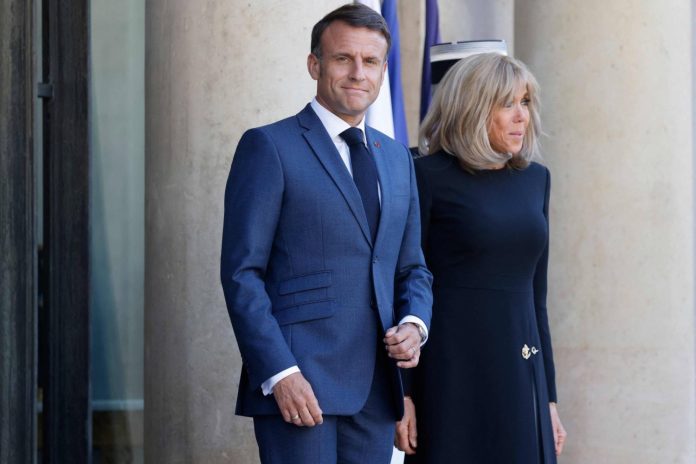French President Emmanuel Macron arrived in Germany today for a three-day state visit ahead of European elections.
Macron, accompanied by his wife Brigitte, begins his visit his visit on Sunday at a meeting in Berlin with German President Frank-Walter Steinmeier before walking through the iconic Brandenburg Gate with the city’s mayor Kai Wegner.
The visit to be seen as a test of the state of German-French relations, which shape EU policy at a time of major challenges for Europe, such as the US election in November and the conflict in Ukraine.
French Presidnet Emmanuel Macron and German Chancellor Olaf Scholz have very different leadership styles and have publicly clashed over defence issues to nuclear power since the latter took power in late 2021. They have recently reached compromises on various issues: fiscal reform and power market subsidies.
According to Yann Wernert at the Jacques Delors Institute in Berlin there are “tensions in the German-French relationship but in part precisely because they have dealt with some difficult topics.” He emphasised the two countries also reached a consensus on the need to expand the EU eastwards.
One of the key such issues is the defence of Europe, especially if Donald Trump wins the US presidential election on November 5. Defence experts see him as a far less predictably reliable ally for Europe than current President Joe Biden. Earlier this year, Trump not only said he would not defend NATO members to a future Russian attack if those countries’ contributions to the defence alliance lagged, but he would encourage Russia.
Another controversial issue is Germany’s purchase of US equipment for its European Sky Shield Initiative air defence umbrella, while France has nuclear weapons. Germany says there is no credible alternative to the US military umbrella and that Europe has no time to wait to develop its own military capabilities.
A significant portion of his trip will be a cabinet meeting on Tuesday in Meseberg, near Berlin, where the two governments will then get down to business as they seek to find common ground on two major issues they have struggled to see eye to eye. eye, namely defence and competitiveness.
